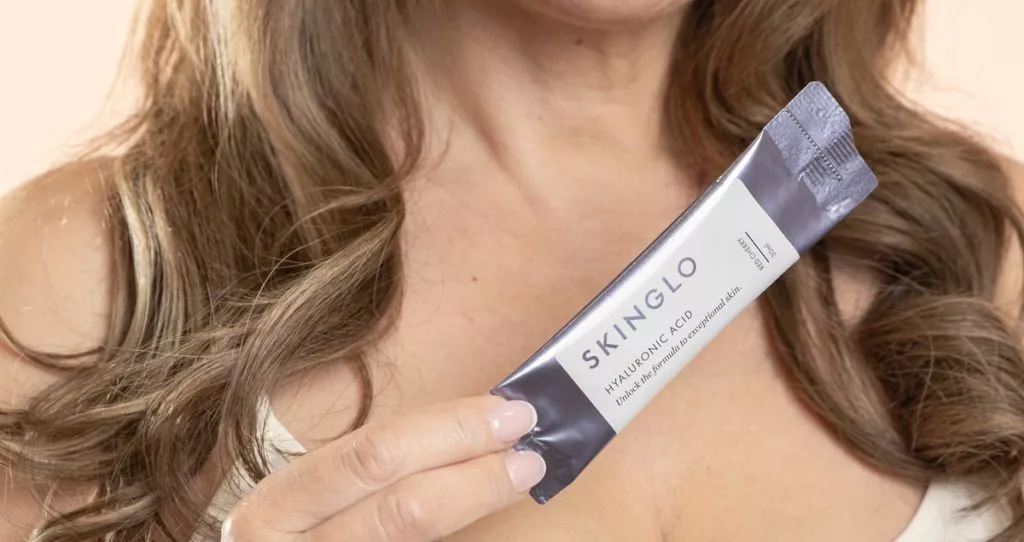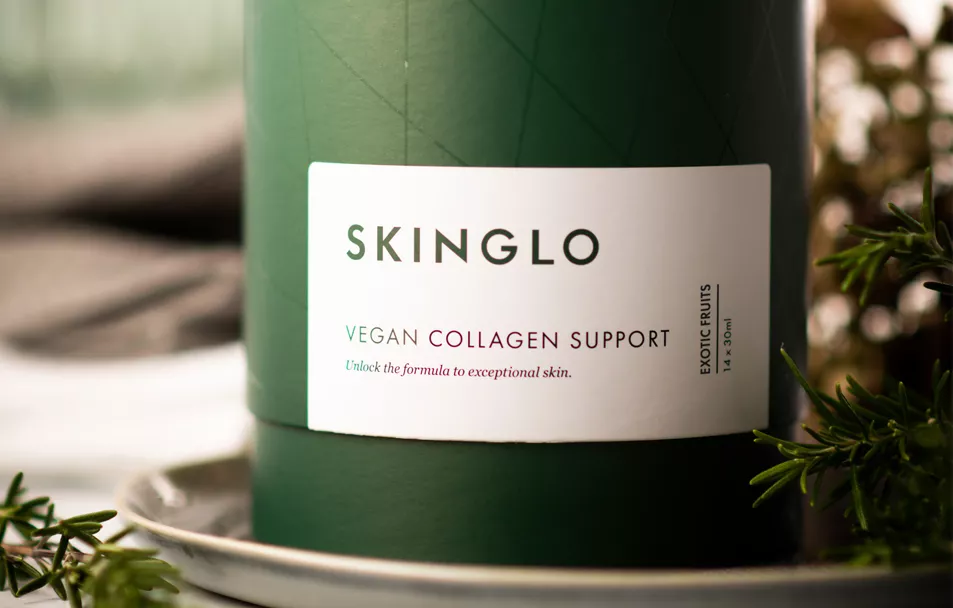Collagen is the main component of skin and connective tissue – it forms up to 70% of both. The normal ageing process starts to happen when collagen stores begin to break down in our bodies. Collagen degradation usually starts in your thirties but can happen faster or sooner due to environmental factors.
How loss of collagen leads to skin ageing
The process of collagen loss is called collagen fragmentation. When skin ages, collagen fragmentation is accelerated, and skin becomes drier and less resilient. The first sign of skin ageing is the loss of the youthful “glow” you generally have in your teens and early twenties. It continues in an increase in skin dryness, thinning out of the skin, and the appearance of fine lines, which eventually progress to wrinkles once collagen stores have been severely depleted and skin loses elasticity. Decreased collagen essentially means less thickness in the skin, which can leave you open to several different signs of ageing.
Preventing collagen degradation
While ageing itself cannot be avoided, further degradation of collagen can be. You can start by eating a healthy, balanced diet rich in vitamin C, which promotes collagen production (also known as collagen synthesis) and vitamin A, preventing sun damage to collagen stores. Damage to your skin from the sun is known as photoaging, and it alone is responsible for most early collagen degradation. Just getting two daily doses of straight sun can accelerate the ageing process. Ensuring that you are wearing sunscreen and face creams with SPF – even in winter – is your best defence against the collagen-busting sun.
Smoking directly impairs collagen production and has the added effect of accelerating fine lines around the mouth. While you should quit for more significant health concerns, it will do wonders for your skin that will start to show within months of quitting.
Collagen helps skin to retain moisture and reduce scarring
Part of collagen’s makeup includes vital amino acids such as:
- Glycine
- Proline
- Hydroxyproline
- Arginine
Hydroxyproline plays a significant role in the stability of collagen in your body. Each amino acid has specific functions, including helping skin retain moisture, accelerate wound healing, and preventing tissue breakdown. You could say that collagen contains its defence against breaking down within its fundamental makeup. These amino acids also help to reduce scarring from wounds and certain skin conditions, such as acne.
Many beauty treatments on the market try to impede ageing effects, but unfortunately, the skin will always age; the question is how quickly. Addressing core issues such as poor diet, smoking, and too much sun can slow the process and delay ageing signs. Additionally, collagen supplementation can help the body replenish lost collagen stores.



